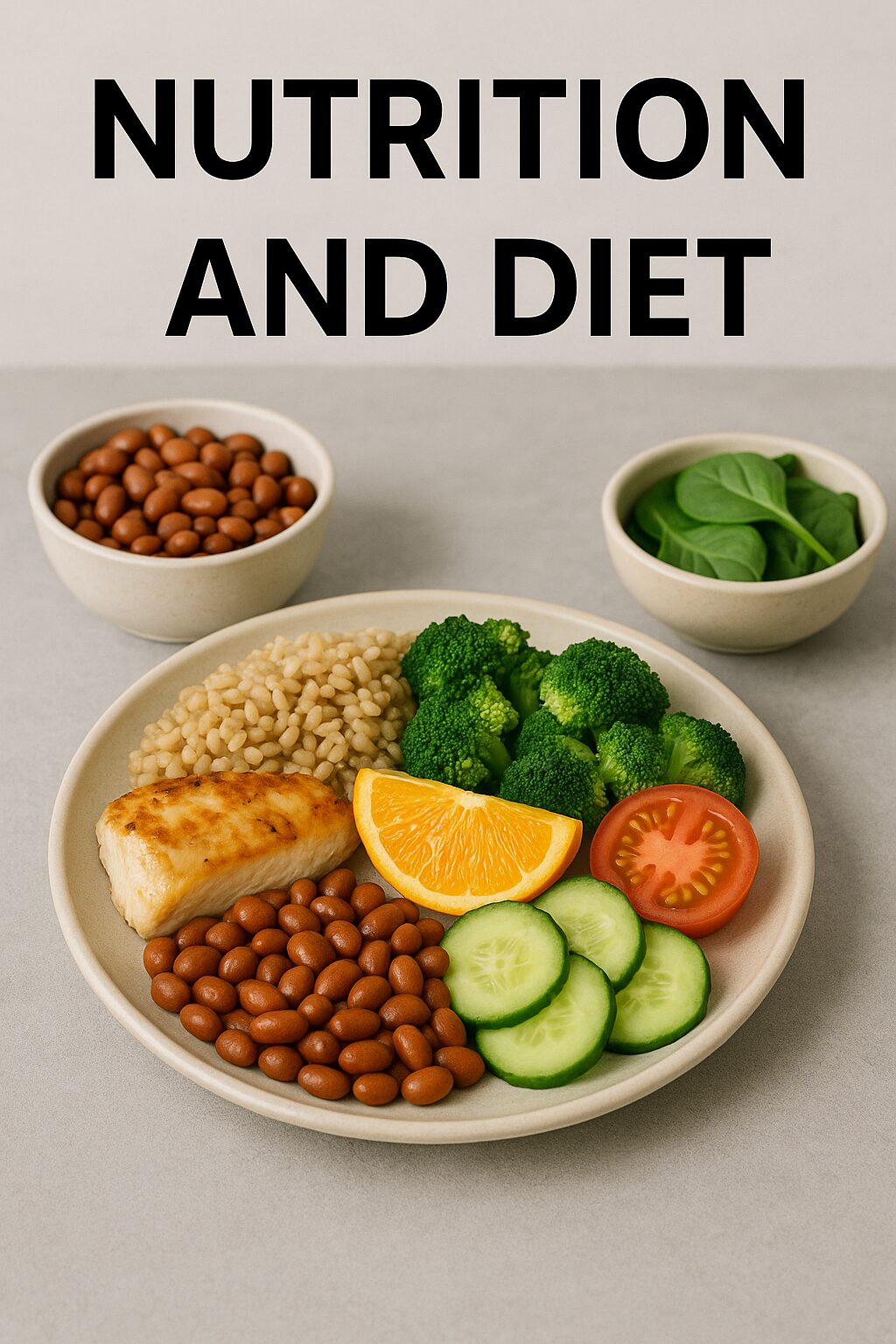
Nutrition & Diet

Eating well is one of the most important steps you can take toward living a healthier life. In Kenya and across Africa, many local foods are packed with nutrients that support good health. This beginner-friendly guide offers practical nutrition tips using easily available ingredients.
1. Understand the Basics of a Balanced Diet
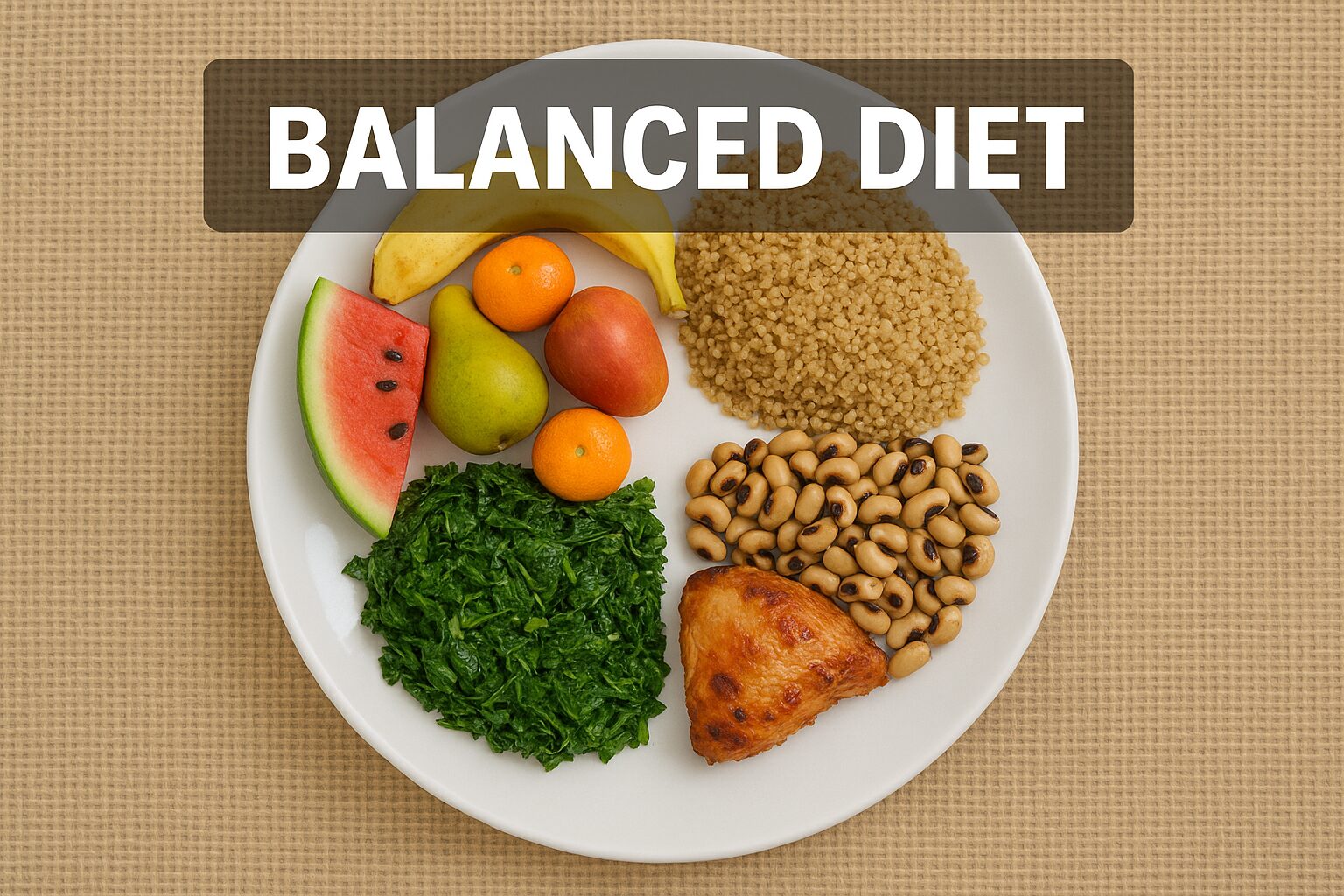
A balanced diet includes carbohydrates, proteins, fats, vitamins, and minerals. Your plate should have a mix of whole grains (like brown ugali or millet), vegetables, healthy proteins (such as beans, eggs, or lean meat), and fruits.
2. Choose Whole Foods Over Processed Foods
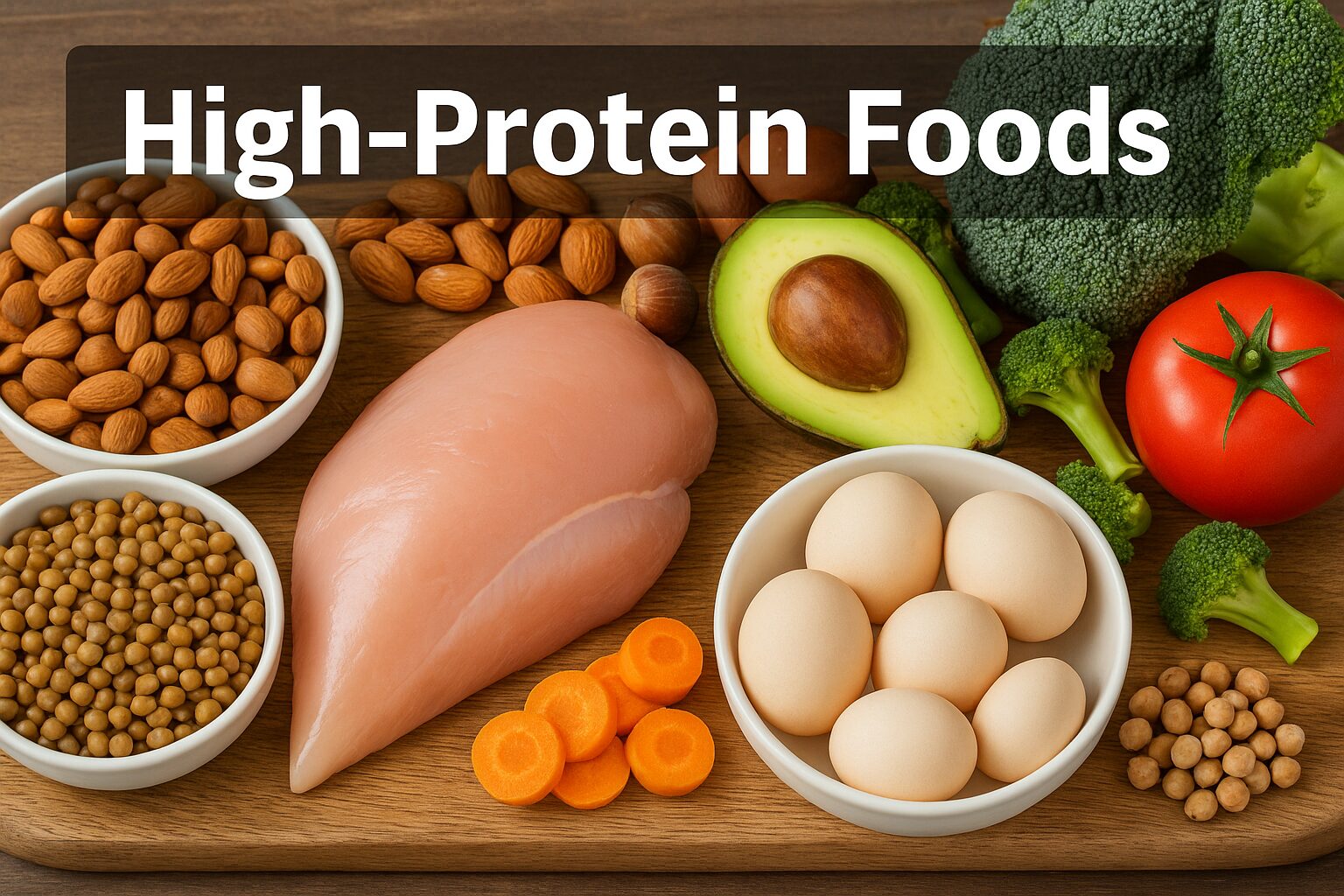
Whole foods like fresh maize, sweet potatoes, sukuma wiki, and bananas are packed with fiber and nutrients. Avoid excess sugar, sodas, and processed snacks, which can lead to weight gain and disease.
3. Hydrate with Clean Water and Natural Drinks
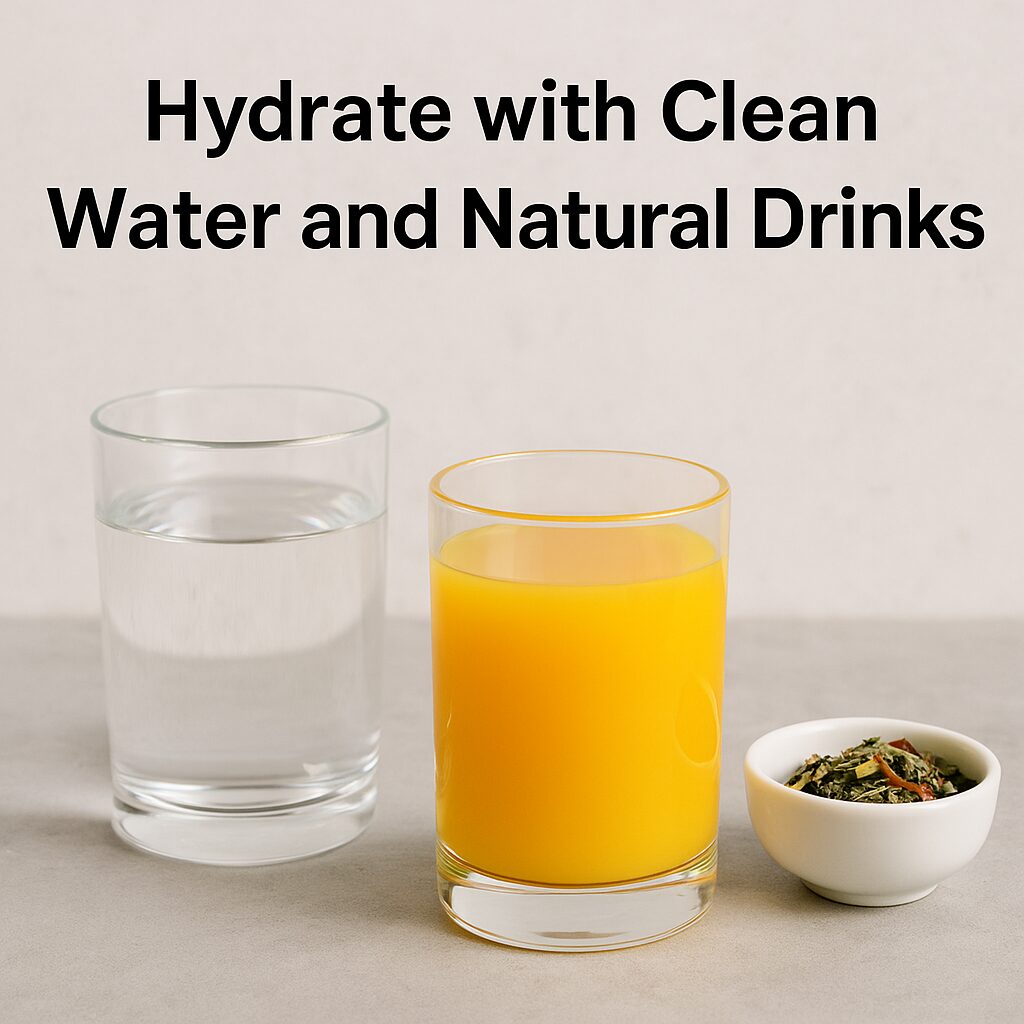
Drinking enough clean water is essential for digestion, energy, and detox. Add herbal teas, lemon water, or homemade fruit juices instead of sugary beverages.
4. Eat Seasonal and Local Superfoods
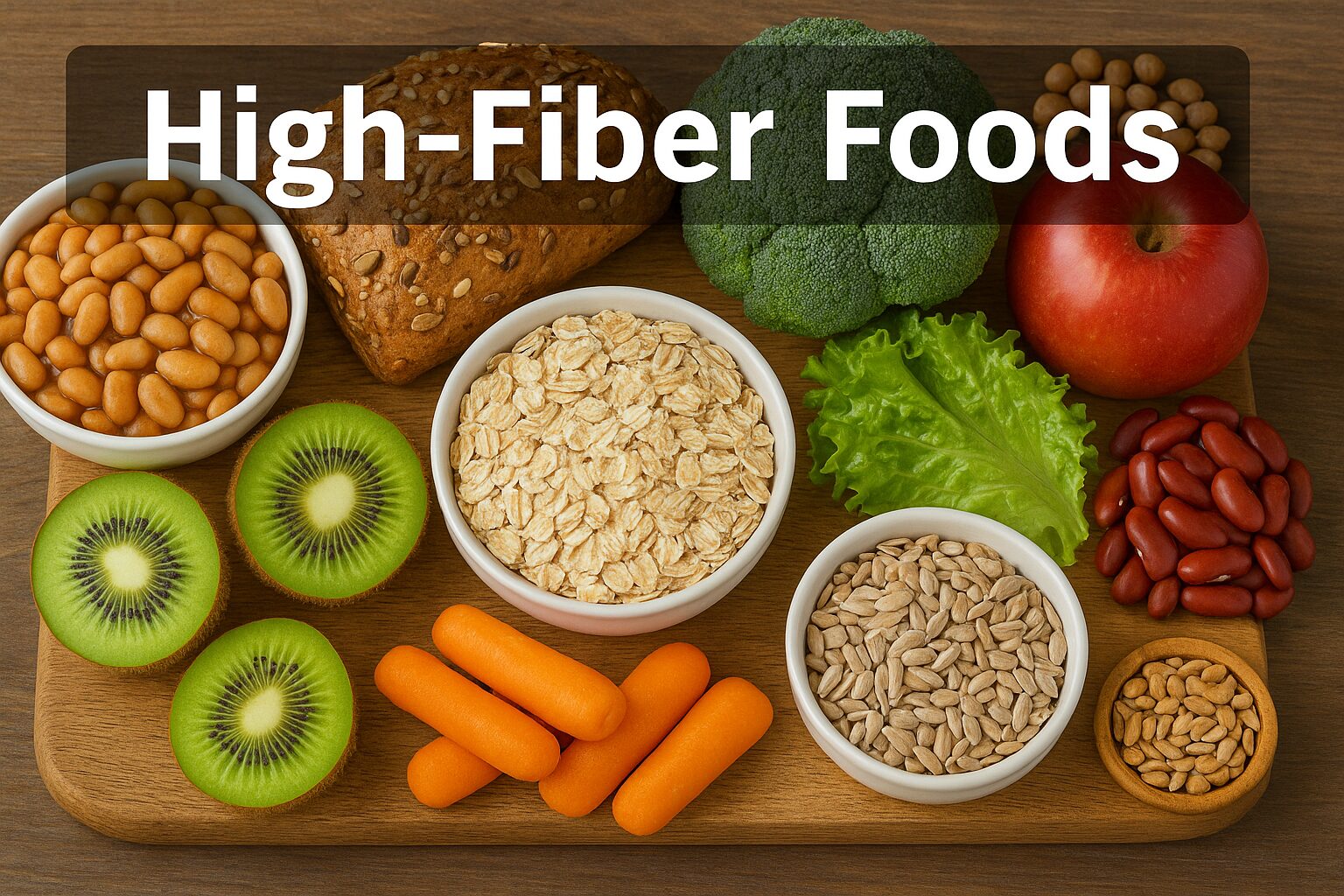
Traditional African foods like amaranth leaves, moringa, ndengu (green grams), and pumpkin seeds offer high nutritional value. These superfoods are affordable and great for boosting immunity naturally.
Simple Daily Diet Plan Example
- Breakfast: Sweet potatoes + black tea + banana
- Lunch: Brown ugali + sukuma wiki + beans
- Dinner: Rice + ndengu + avocado
Final Tips
✓ Reduce salt and sugar.
✓ Avoid skipping meals.
✓ Always wash fruits and vegetables before eating.
Need Help with Nutrition Planning?
Contact Totalease Ventures for wellness consultations.
📞 WhatsApp: +254103476188
📧 Email: sales@totaleaseventures.co.ke